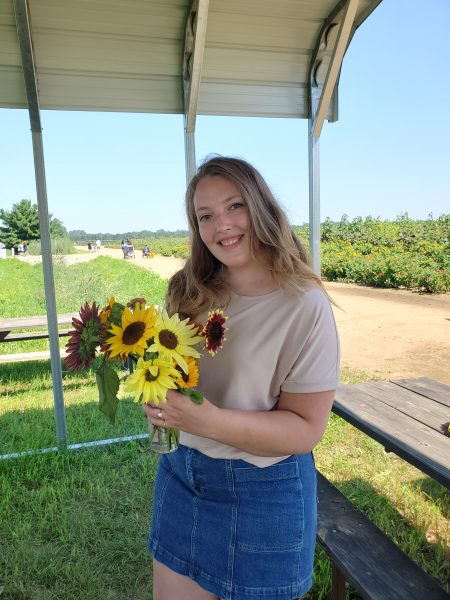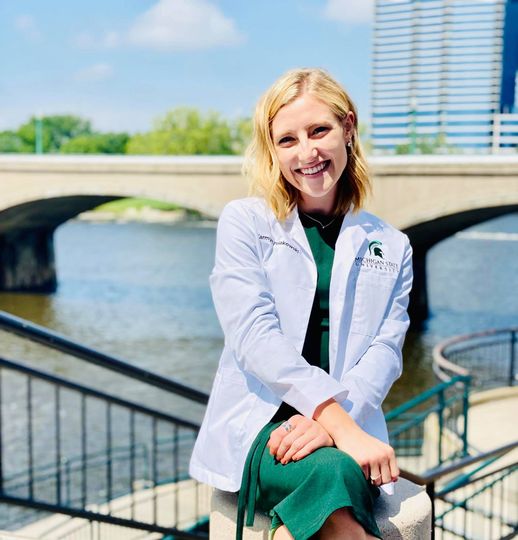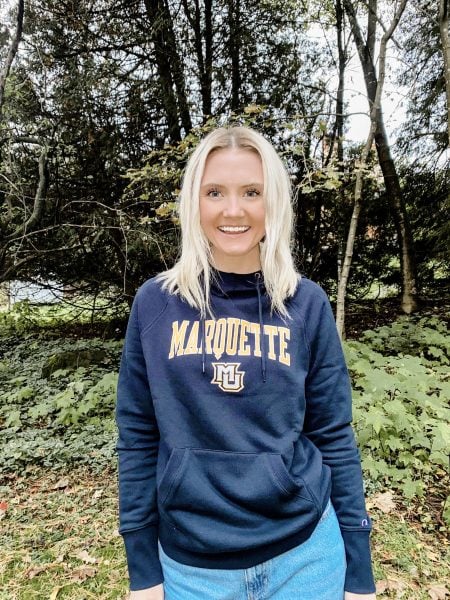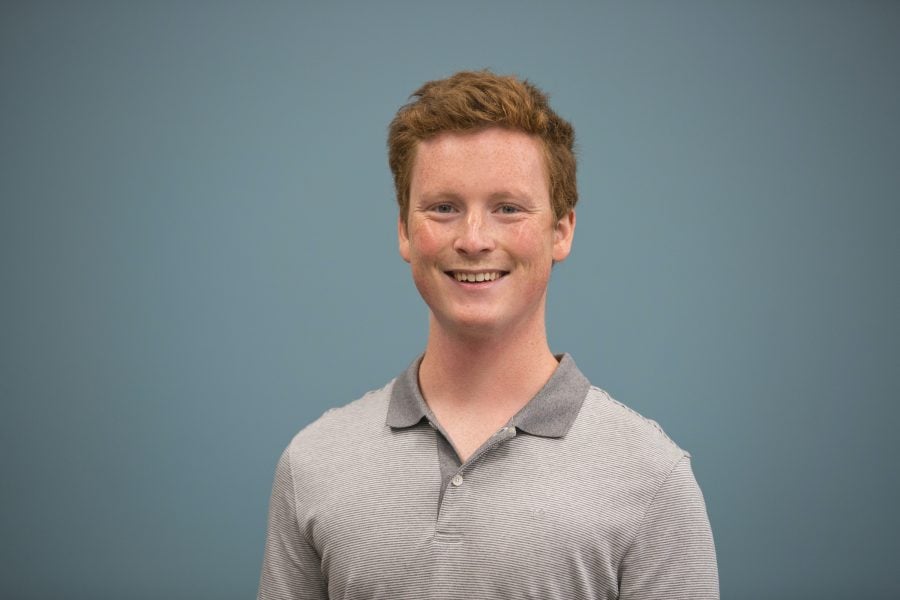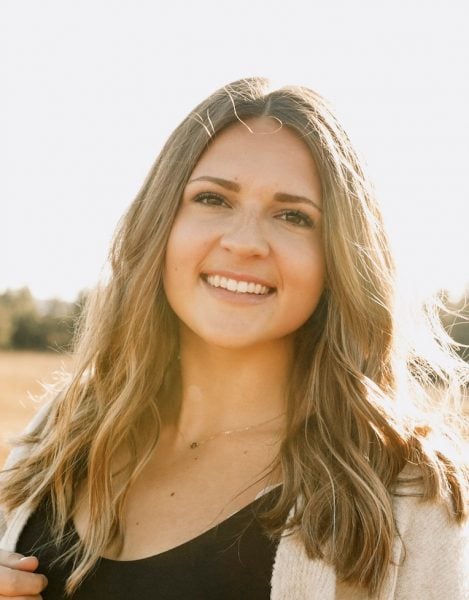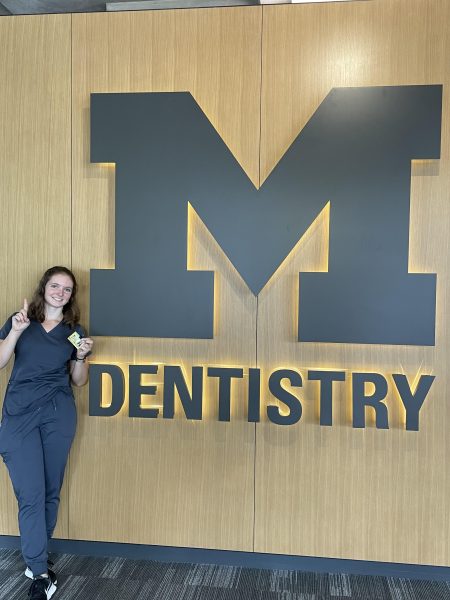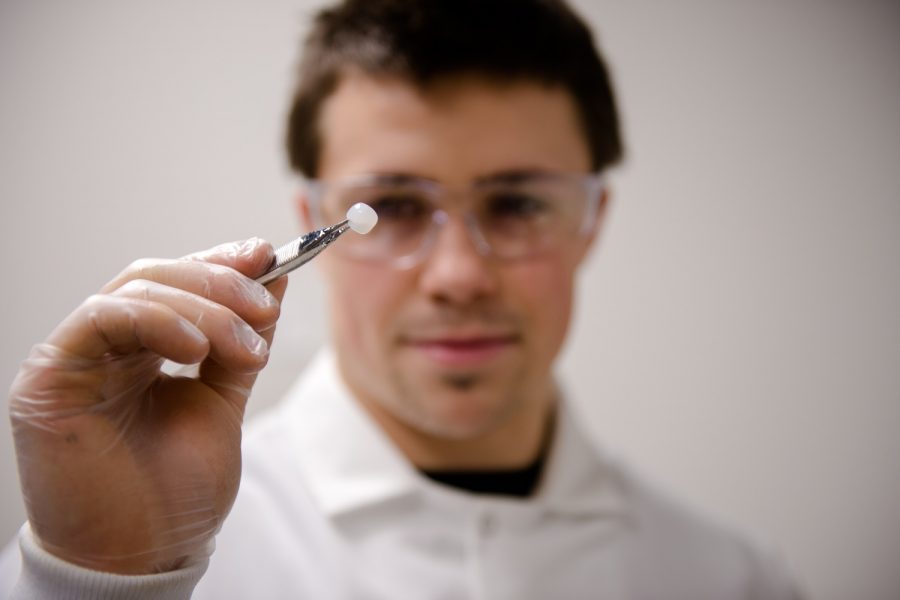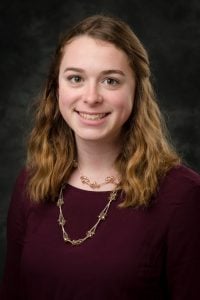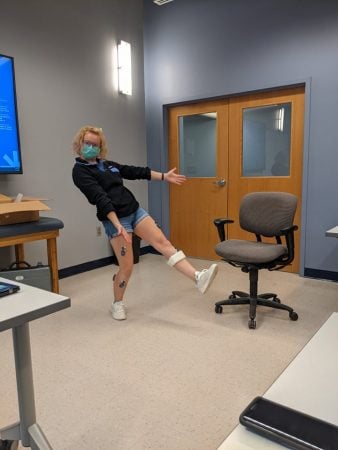
Hi! My name is Allysa Meinburg. I am currently a first-year grad student in the Masters of Prosthetics and Orthotics at the University of Pittsburgh. Prosthetics and Orthotics is a specialty field in rehabilitation medicine that focuses on creating and delivering devices for those with limb deficiencies. This program applies biomedical engineering concepts but adds pathology and physical human care in a treatment plan. This specialty can be in both immediate post-op and long-term care.
I enrolled at Michigan Tech as a Biomedical Engineering major, and later I switched majors to Biology and graduated with a Human Biology major and minors in Pre-Health Professions and Enterprise. Having a strong engineering and biology background has really set me up to have a well-rounded understanding of my field.
I knew I wanted to be a prosthetics and orthotics practitioner since I learned about the field in high school and have been pursuing avenues to get there ever since. I participated in competitive robotics (FIRST Robotics Competition) and later mentored teams through my time at Mott Community College and at Tech. I enjoyed engineering and technical device design but realized I wanted to focus more on healthcare and human practice. I have worked in many healthcare positions as an ER Physicians Scribe, a Surgery Tech, and an Orthotics Technician. My education at Tech enriched my understanding of human biology, research, and design, but my work taught me patient management and healthcare systems technology.
While at Tech, I had participated in Dr. Ongs’ BME research lab but found my true passion on the AAA Prosthetic Enterprise Team. Over 4 years our team addressed the challenge of affordable accessible prosthetic devices. I used my 8 semesters of Enterprise research and design to publish 2 research posters and presented them at the American Academy of Orthotists and Prosthetists national conference. The team I was a part of was made up of mostly engineers, but I found myself focusing on the overall functionality of the product and clinical interactions. With my history of patient care in mind, we designed an ankle prosthesis so it could be easily serviced by the individual with components that are replaceable when they wear out. Having a complete understanding and motivation in product design, I feel like we really created a breakthrough product.
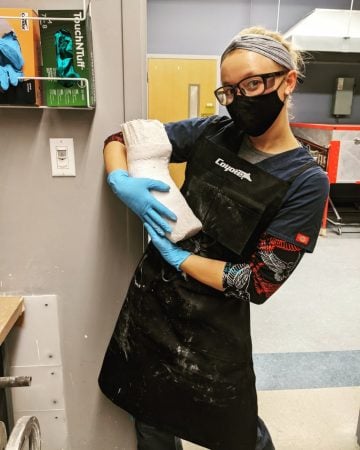
I loved all that Michigan Tech has to offer- both academic and extracurricular! I conducted research in Dr. Ong’s BME research lab and published a paper with his team. On the Enterprise AAA Prosthetic team, we presented research posters at the American Association of Orthotists and Prosthetists conference twice. In my senior year, I was elected the President of the Enterprise Department and received the Outstanding Leadership Expo award. I was also a part of the medical honor society Alpha Epsilon Delta and served as a member and the President. For extracurriculars, I played Women’s Club Rugby, was a member of CRU and loved(!) to play broomball. I would highly recommend joining AED, the national health honor society. This honor society offers great mentoring connections, volunteering, and philanthropy opportunities. I would also recommend conducting research in any department. I learned so much about how to design a research project, gather data, and implement changes. These skills are paramount in Evidence-Based Practice.
My biggest piece of advice for any Tech student is don’t lose your #tenacity! At the time, Tech didn’t have any prosthetics programs, so I created my own! Working with the Enterprise department we, myself, and the other team members expanded the AAA team and now it has an ankle and foot, prosthetic research team. Lots of the P&O background research and medical ISO preparation processes I am now learning in grad school- huge advantage! We sought funding by presenting to other foundations and departments. Ultimately, this spearheaded our traveling and publishing research at the AAOP conference. If you want to study something that doesn’t exist, it just doesn’t exist YET! Go and find what you love and stay #tenacious.
